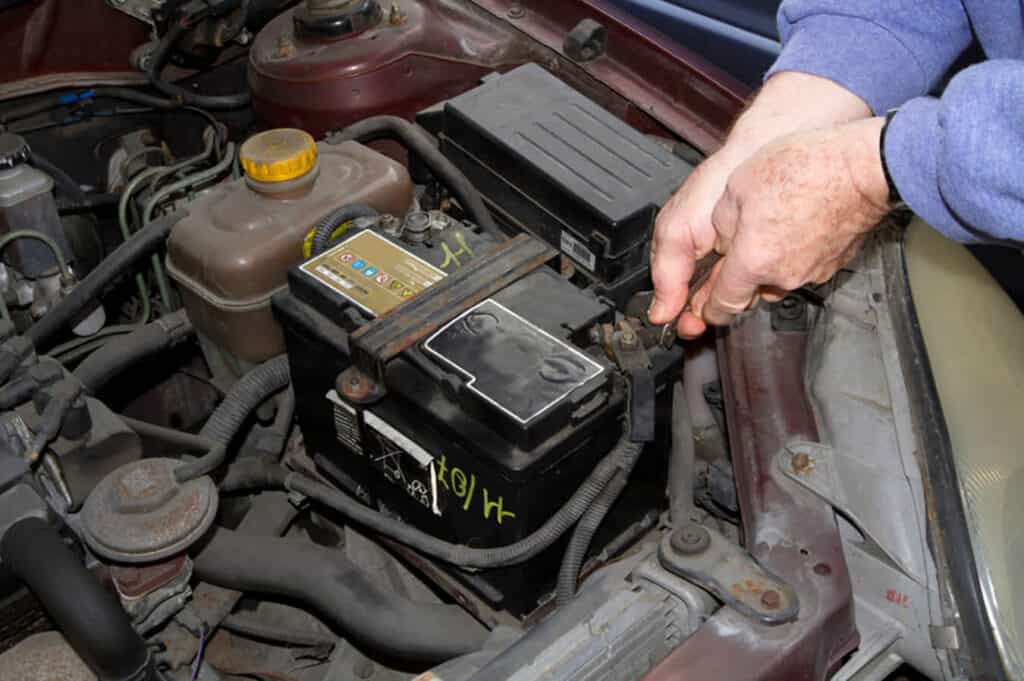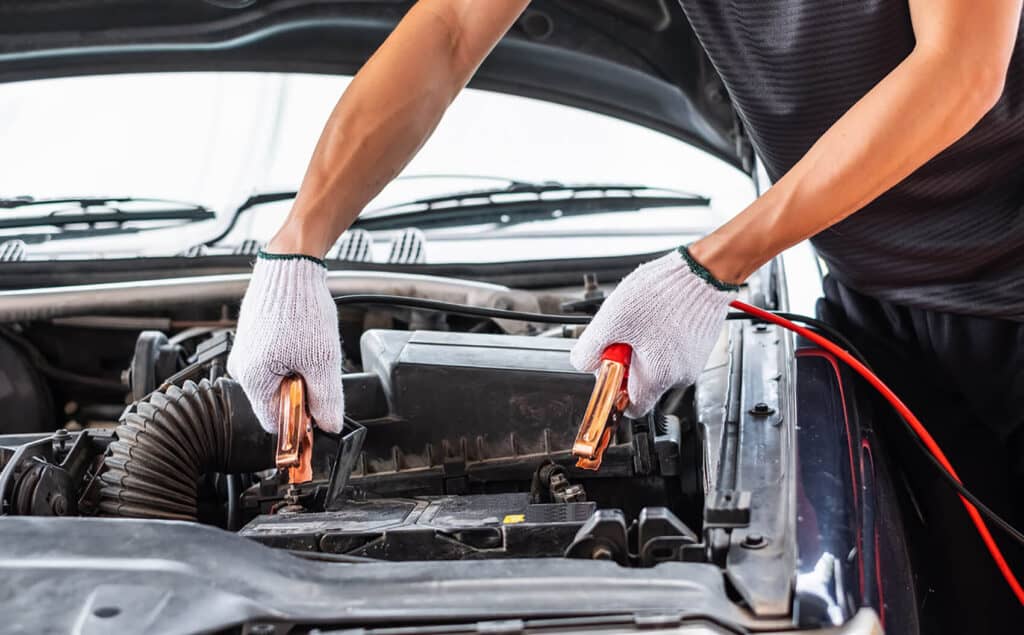Introduction: The Dangers of Neglecting Your Car Battery When Not in Use
You’ve probably heard the saying, “use it or lose it,” right? Well, the same principle applies to your car battery. You might wonder, “Will my car battery die if I don’t use it?” Absolutely, it can. Neglecting your battery while your car is idle can lead to various issues, including poor performance and, eventually, a complete shutdown.
The Idle Threat: How Long Your Car Battery Lasts Without Use
“How long do car batteries last without the car running?” is a question akin to asking how long a cake will last at a kid’s party—there are just too many variables to consider. But on average, a fully charged car battery will keep its charge for about two to four weeks when not in use. That sounds comforting, but don’t be lulled into complacency. Various factors like the battery’s age, its chemical composition, and even the climate can take a toll on its longevity. An old battery in a cold environment is the perfect recipe for a short life. Periodic use of the vehicle—say, a quick 20-minute spin around the block—can go a long way in maintaining the battery’s health.
While two to four weeks might sound like ample time, life often has other plans. Let’s say you go on an extended vacation or have been working from home due to the pandemic. In such cases, the risk of finding your battery dead upon your return rises exponentially. Therefore, either get a neighbor to start your car and let it run for a bit, or invest in a battery maintainer to keep your battery in tip-top shape even when you’re not around.

Keeping the Charge: Strategies to Prevent Battery Drain When Not in Use
• Disconnect the Battery: One of the most straightforward ways to preserve your car battery when not in use is simply to disconnect it. This action eliminates any drain from parasitic loads like your car’s clock or security system.
Pro Tip: Always disconnect the negative terminal first to reduce the risk of short-circuiting.
• Use a Battery Maintainer: Unlike traditional chargers, a battery maintainer can be left connected for long periods. It provides a low, steady charge to keep your battery at optimum levels without overcharging.
Advantage: Great for seasonal vehicles like RVs or motorcycles that go unused for months at a time.
• Regular Short Drives: If possible, take your car for a quick 15 to 20-minute drive once a week. This can help keep the battery adequately charged.
Note: Make sure the drive is long enough for the alternator to recharge the battery.
• Check for Parasitic Drains: Sometimes, even when the car is off, certain systems might use power. Identify these and unplug or deactivate them if possible.
Examples: Dash cams, aftermarket stereo systems.
• Keep it Clean: A dirty battery can self-discharge quicker due to built-up grime on the terminals. A clean battery is an efficient battery.
How-to: Use a mixture of baking soda and water to clean the terminals.
• Climate Control: Extreme temperatures, both hot and cold, can affect battery life. If you have the option, try to park your car in a garage to protect the battery from harsh weather conditions.
Why: Cold can cause the battery to discharge faster, and heat can lead to quicker degradation of the battery’s internal components.
• Use Energy Wisely: Before turning off the car, make sure all the lights, radio, and other electrical components are switched off.
Reminder: Leaving headlights or an interior light on can drain a car battery to the point of no return overnight.
Recharging Questions Answered: How Long Does It Take and Can It Recharge Itself?
When it comes to recharging, many people hold the misconception that car batteries are like cats with nine lives—they’ll somehow rejuvenate themselves if left alone. Unlike cats, car batteries have no self-healing powers. They need an external source of power for recharging, be it the alternator while you’re driving or a dedicated battery charger when you’re parked.
The time it takes to recharge a car battery depends on both the charger you’re using and the state of your battery. The range could be anywhere from 4 to 24 hours. Think of it like cooking a pot roast—the time required varies based on the size of the roast and the temperature at which you’re cooking. Using a trickle charger, which supplies a low, steady charge, could take up to 24 hours. A more powerful charger might do the job in 4 to 6 hours. But remember, speed isn’t everything. Rushing the process with a powerful charger could lead to overcharging and reduce the lifespan of your battery.
To Idle or Not to Idle: Does Idling Your Car Help or Hurt the Battery?
Idling does charge the battery, but it’s so inefficient it’s almost laughable. It’s a bit like filling a water bottle with a dripping faucet—technically, you’re making progress, but it’s barely noticeable. The power generated by idling is often insufficient to offset the energy consumed by the car’s electrical system, meaning you could, paradoxically, end up draining your battery while trying to charge it.
On the flip side, there’s also the issue of fuel consumption and emissions. Not only does idling tax your battery, but it also burns fuel and emits carbon dioxide. So not only are you not helping your battery much, but you’re also doing the environment no favors. If your primary objective is to charge your battery, there are far more effective and eco-friendly methods available, such as using a battery charger or going for a quick drive.
Routine Maintenance: How Often Should You Start Your Car to Keep the Battery Charged?
The frequency with which you should start your car to keep the battery healthy is another common query. Imagine your battery as a rechargeable flashlight; use it periodically to ensure it’s ready when you need it. Starting your car at least once a week and letting it run for 15-20 minutes should do the trick. This running time allows the alternator to charge the battery sufficiently and ensures that your car’s various systems remain in working order.
However, the ‘once-a-week’ rule isn’t universally applicable. Factors like the age and type of your battery, the climate, and even your car’s general condition can all impact how often you should start it. Some might need to kick start their engines more frequently, especially during winter when batteries are more susceptible to the cold. So while once a week is a good baseline, consider it a starting point rather than a one-size-fits-all solution.

Common Myths and Misconceptions: Sorting Fact From Fiction About Car Batteries
• Myth: Driving Recharges a Fully Drained Battery: One of the most widespread myths is that merely driving your car around will fully recharge a depleted battery. While driving can contribute to recharging, it typically can’t restore a deeply discharged battery to full health.
• Fact: Dedicated Charging is Often Required: To completely recharge a deeply drained battery, you’ll usually need to connect it to a dedicated battery charger. These chargers are designed to deliver a consistent power output, ensuring that the battery reaches its full capacity.
• Inadequate Drive-time: Some people assume that a short drive to the grocery store is enough to recharge their battery. This is rarely sufficient, especially for batteries that are already in a weakened state.
• Surface Charging Misconception: Surface charging is when the battery has just enough charge to start the car but not enough for long-term reliability. Many people mistake this for a fully charged state, which can be misleading and result in battery failure down the line.
• Jump-Starting Isn’t a Long-Term Solution: Another misconception is that jump-starting is a viable long-term solution for a failing battery. While it provides a quick fix, it doesn’t address the underlying issue and is not a replacement for proper charging and maintenance.
• Always-Ready Fallacy: Some car owners believe that modern batteries are maintenance-free and will always be ready to perform. This is far from the truth; even modern batteries need regular check-ups and occasional charging.
• The “It’s Just the Battery” Mentality: Often people think battery issues are isolated and won’t affect other car systems. In reality, a malfunctioning battery can adversely impact various vehicle functionalities, from the electrical system to the alternator.
Conclusion: Key Takeaways to Keep Your Car Battery Alive, Even When You’re Not Using Your Car
In summary, your car battery is not a set-it-and-forget-it component. Even when you’re not using your car, the battery requires attention to keep it from dying. Regular maintenance and sensible practices like not leaving your car idling for long periods are essential.
In case you’ve been facing continuous issues with your car battery or any other automotive problems, why not reach out to Uchanics? As a trusted mobile mechanic service in Canada, we come right to your location to resolve your car issues efficiently. Book an appointment today and drive your worries away!
